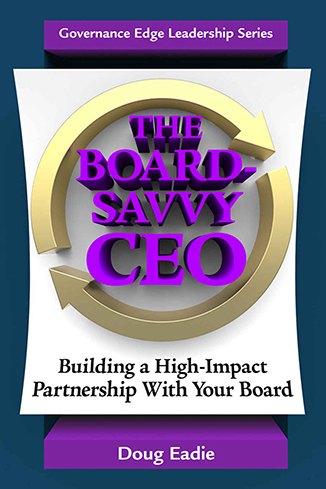The June 15 article at this blog makes the case for the chief of staff position in the CEO’s office as a viable alternative to the CEO-chief operating officer (COO) structure: http://extraordinaryceo.com/chief-staff-alternative-ceo-coo-structure/ If you’re considering adding a chief of staff to your CEO office team, you’re well advised to give serious thought to the traits required to succeed in this very demanding role. Over the years, I’ve observed a number of chiefs of staff in the CEO offices of a wide variety of nonprofit and public corporations, and I was also fortunate to spend five years as chief of staff to the president of a large, three-campus community college early in my career. Based on my experience, I’d suggest that two traits are most critical to a chief of staff’s success. At the top of the list of critical traits is high-level, diverse executive experience involving frequent interaction with the CEO, and running a close second is a robust, healthy ego that doesn’t need constant pumping up.
Perhaps the most common mistake that I’ve seen CEOs make when they’re recruiting a chief of staff is to see this incredibly demanding position as a kind of super administrative assistant job. Taking this tack in your recruitment will almost certainly lead to a short, extremely unhappy tenure for your overwhelmed chief of staff, who couldn’t possibly learn what she needs to know on the job, even if you could devote several hours helping your new chief of staff get up to speed. The chiefs of staff I’ve seen succeed over the years have without exception brought in-depth understanding of the chief executive function and senior level bureaucratic experience to the job. Looking back, it’s clear to me that my experience as chief operating officer of a large social services agency and as a state and city budget director was critical to my success as chief of staff to a community college CEO.
Coming to the chief of staff job with an in-depth understanding of the cultural and political dynamics of large organizations certainly served me well from the get-go. To take a humorous example, when I arrived at the college administrative headquarters for my first day on the job, my new boss, the college president, was on an extended business trip. Checking in with his executive secretary, I was informed that the vice president of business operations would show me to my newly furnished office. Not having been born yesterday, I knew exactly what was going on when Dan escorted me from the presidential suite on the third floor to a pleasant – but small – office on the ground floor, around the corner from the business office. Immediately after Dan left, I walked back up to the third floor, briefcase in hand, and after strolling around for a few minutes, found a small conference room only steps away from the president’s office with a round table and telephone. I moved in. And I stayed there, despite a daily phone call from Dan asking when I would be taking possession of the office he’s secured for me and making the conference room I was squatting in available for staff meetings. I had some explaining to do when the president returned, since he was in the second month of his first CEO position and had never worked with a chief of staff, but he had no trouble understanding that he couldn’t allow a vice president to park a senior member of the CEO team in the basement.
Really secure people are blessed with healthy egos that don’t demand constant affirmation. This is essential for a chief of staff, who necessarily exercises influence indirectly, largely behind the scenes – for example, developing agendas for the CEO’s executive team meetings, drafting follow-up memos to executive team members for the CEO’s signature, drafting comments for the CEO to deliver in public meetings, reviewing and commenting on recommendations coming to the CEO from senior executives, etc. A successful chief of staff can be highly influential, but the influence is necessarily wielded indirectly, well away from the limelight. A person cursed with an unhealthy ego that needs continuous feeding cannot possible survive for long as chief of staff to a CEO.






